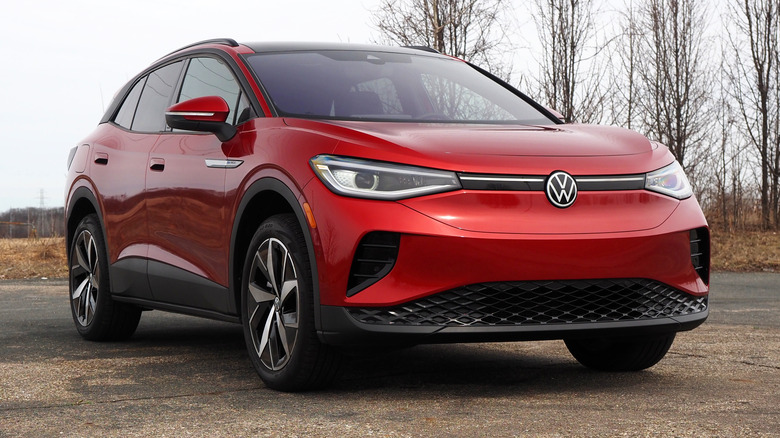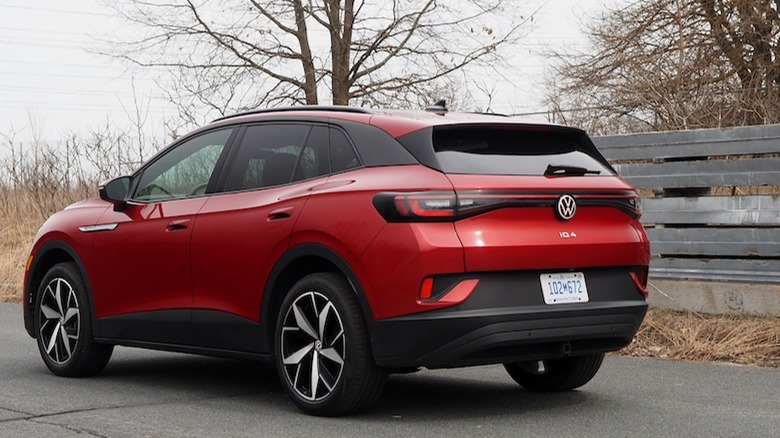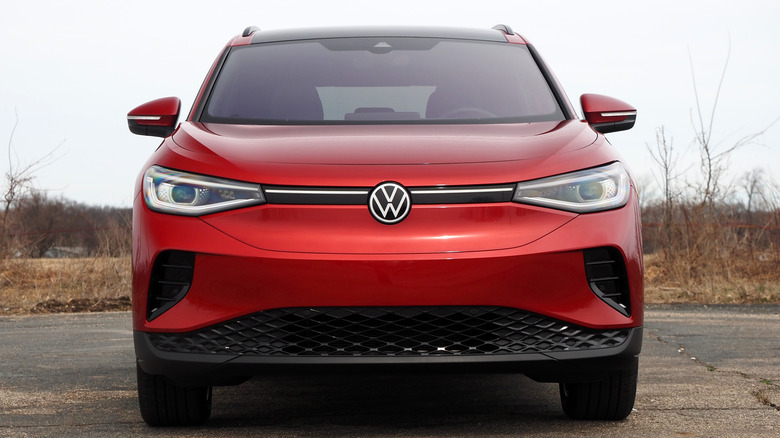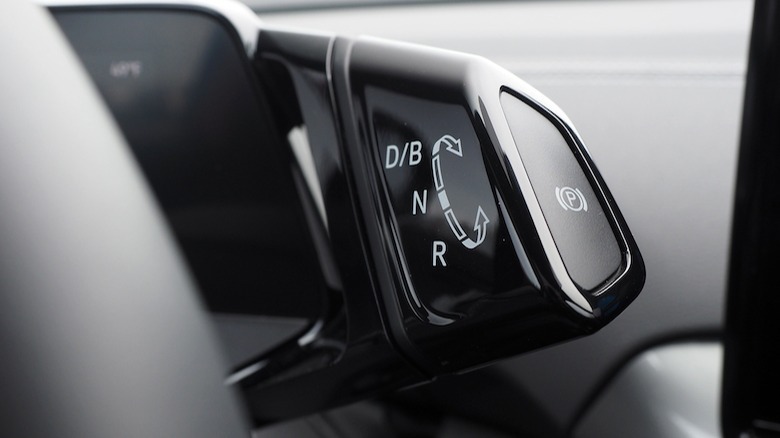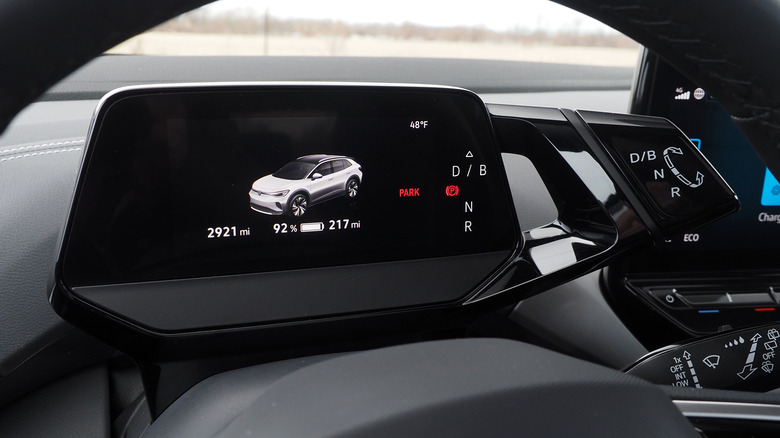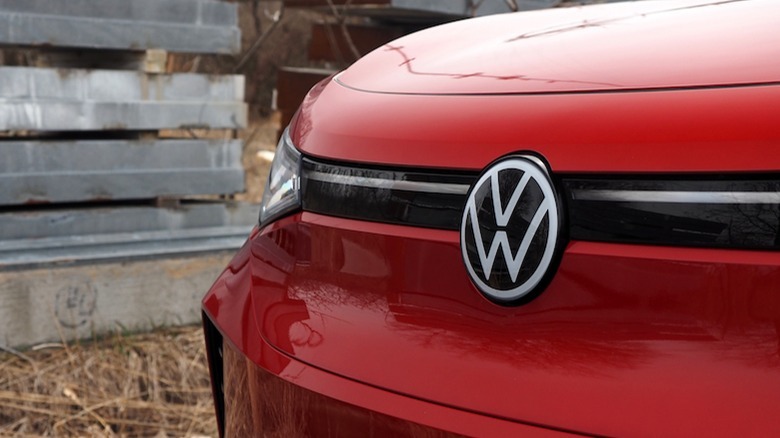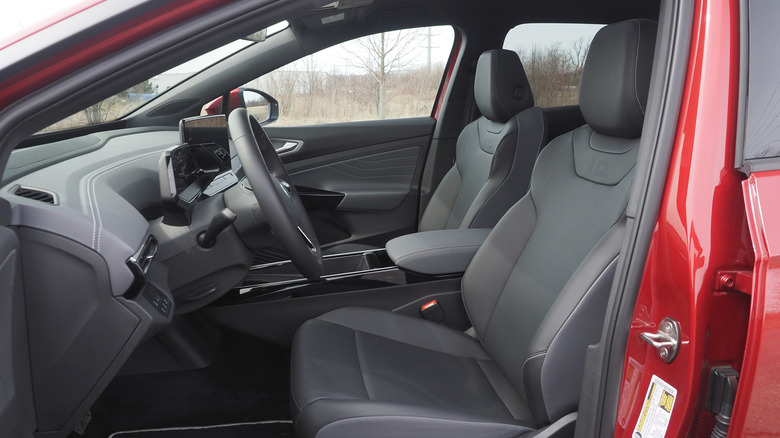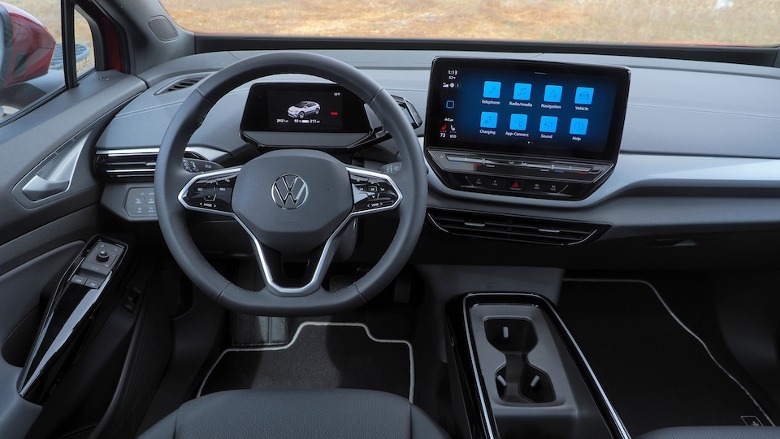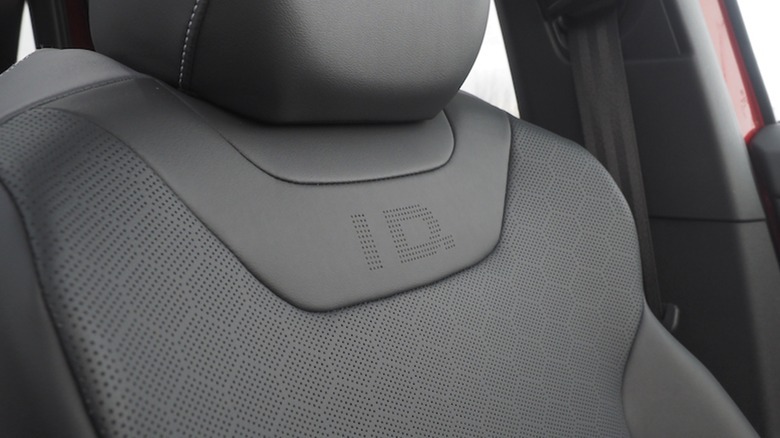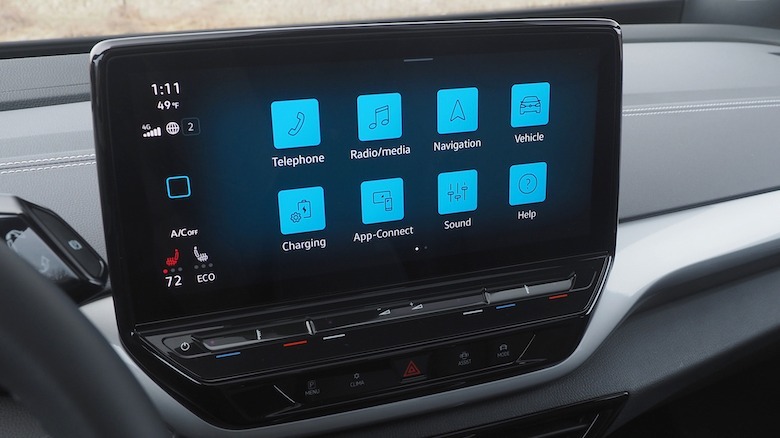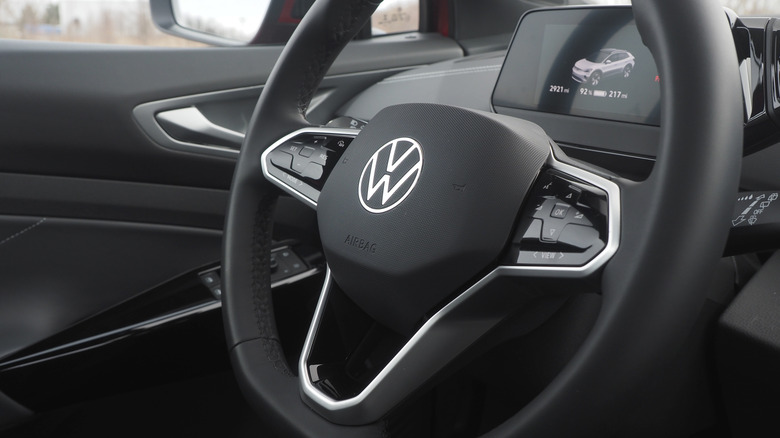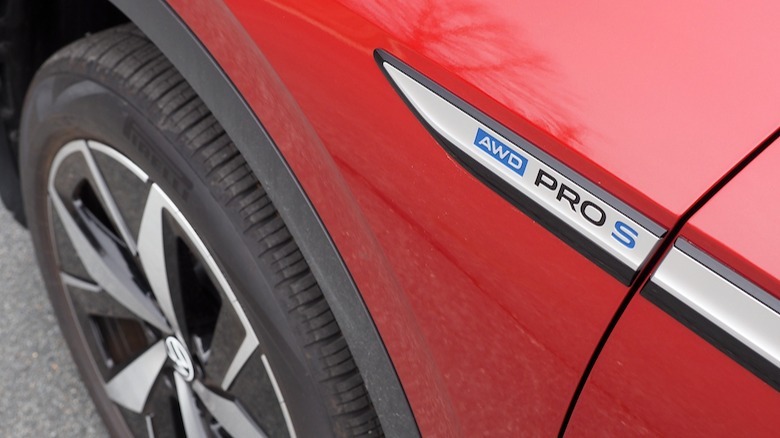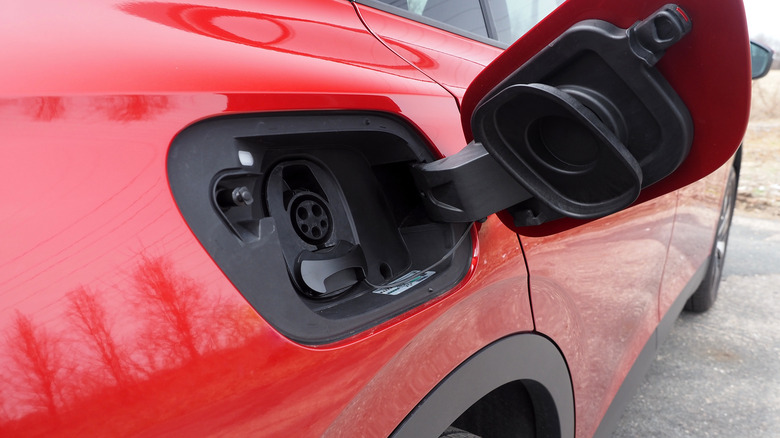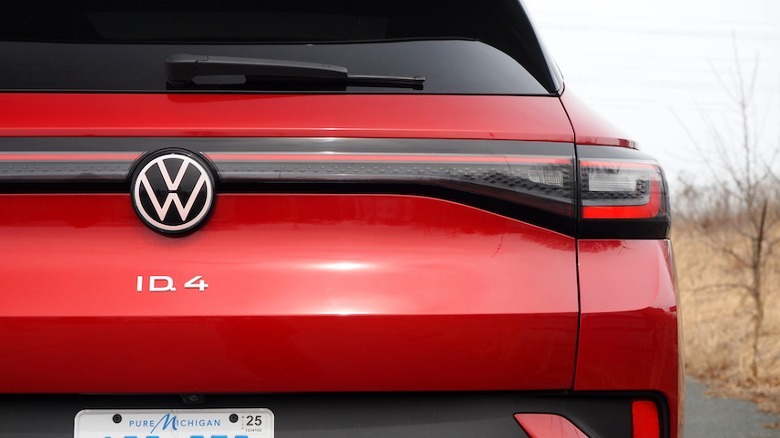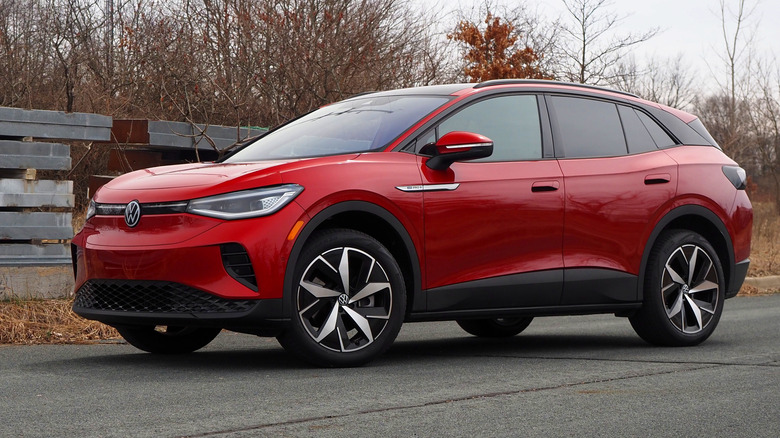2023 Volkswagen ID.4 Review: An Electric SUV For The Masses
- Stylish and spacious
- Smooth and refined drive
- Solid levels of standard equipment
- Good tow rating
- Rivals drive further and faster on a charge
- Dashboard controls can be frustrating
With electric car sales increasing, new models being announced seemingly every week, and even traditional vehicles like pickups and three-row SUVs ousting gasoline and embracing electrons, it'd be easy to assume everyone is on board. In reality, although some drivers have already been swayed by gutsy acceleration and home charging convenience, the transition is still a work in progress. Volkswagen's answer is an EV that, though fully electric, still feels approachable and familiar enough to avoid scaring potential switchers in the dealership.
Swooping and curvaceous, like a glass and metal egg, the 2023 VW ID.4 may not be quite as charming as the upcoming ID. Buzz electric microbus but it's still fairly cute. It's deceptively large, too: this Pro S trim — gleaming in Aurora Red metallic paint — wears sizable 20-inch alloy wheels.
At the front, a fascia-spanning light bar helps lift the blunt nose, while the oversized VW badge and LED-rimmed headlamps are reminiscent of Flavor Flav with his exaggerated jewelry and glasses. That's probably not what Volkswagen was going for. Things only get awkward south of the C-pillar, where curves run up against the designer's need to elevate the roofline and ensure trunk space. The result looks a little busy.
It's hard to argue with the ID.4's packaging, though. While it may be five inches shorter than VW's Tiguan, the EV has slightly more front legroom and only an inch less in the rear (comparing the five-seater ID.4 to the two-row, five-seater Tiguan). Cargo space is 30.3 cu-ft with the second row up, and 64.2 cu-ft with it folded down.
Perky but not organ-displacing
In VW parlance, "Pro" versions of the ID.4 have the larger, 82 kWh battery, while non-Pro models have a smaller, 62 kWh pack. While there are single-motor versions of the car, this 2023 ID.4 AWD Pro S — which comes in at $51,295 plus $1,295 destination — packs a pair of them, one for each axle. The result is all-wheel drive, 295 horsepower, and a reasonable 339 lb-ft of torque.
On the road, the ID.4 feels firm and perky. It's not exactly a thrilling experience from behind the wheel, but it's quiet and smooth. Your internal organs won't be readjusted like in more potent EVs under aggressive acceleration, but then neither will Volkswagen's compliant suspension tuning prompt any lower back issues. I do wish, though, that the ID.4's maximum brake regeneration was more fierce, as I found myself hitting the brake pedal more than I might in other EVs.
Respectable range but far from class-leading
According to the EPA, you'll see 255 miles of range from the 82 kWh battery. That's a welcome step up from the 209 miles that the ID.4 with the standard pack is rated for, though short of the 275 miles that the non-AWD "Pro" EVs can do. I saw 2.7 miles per kWh, which is fair but not great (the dual-motor EV6 did 3.3 mi/kWh, by way of contrast). Compensating for that, though, is the 2,700 pounds of towing capacity for the all-wheel drive ID.4, and the standard trailer hitch on this trim.
Even with the bigger battery, though, VW falls short of what rivals are offering. A Kia EV6 Wind e-AWD is a little more expensive, at $53,925 (plus destination), but has more horsepower, torque, and — at 282 miles — range. The Polestar 2 Long Range Dual Motor is $51,900 (plus destination) and pulls slightly ahead on range, at 260 miles according to the EPA, but has considerably more power than the ID.4. Finally, Tesla's Model Y Long Range starts at $54,990 (plus destination), but is considerably faster than the VW, not to mention rated for a whopping 330 miles of range.
A brighter cabin than most VW offerings
Few automakers find themselves caught in lineup duality like Volkswagen does today. On the one hand, the "legacy" series — gas-powered models, like the Tiguan, Jetta, and Golf — stick closely to VW's old interior aesthetic, sober and dark. It's a sharp contrast to the far brighter accommodations of the ID family, which feels far more airy and approachable.
In the case of this particular ID.4, the "Galaxy" interior trim uses black and gray leatherette, but the optional "Cosmic" version's gray and blue leatherette — combined with white trim pieces — make it feel much airier (though perhaps a little less family- and pet-friendly). The dashboard itself is slim and simplified, topped by a sizable 12-inch touchscreen, while the driver gets a small but crisp digital instrument display.
I like VW's infotainment UI, or at least I did after a little familiarization with where some of the options — like auto-hold, which is tucked away in a swipe-down menu — were hidden. The ID.4's steering wheel and HVAC controls, all of which are touch-sensitive, are less pleasant and can be frustrating to adjust with precision.
Volkswagen's decision to ditch a second row of electric window switches, meaning the driver must toggle front and rear control with another touch-sensitive button, is weird, as is the twisting drive mode selector. At least the latter remembers whether you were in regular "D" or more aggressively regenerating "B" mode, when you switch between that and reverse.
Clever tech but some obvious omissions
With its only option being a $395 paint job, the car you see here is $52,985 (including $1,295 destination, but before any incentives). The Pro S trim gets plenty of standard features, from power-folding side mirrors, a heated windshield and washer jets, and a panoramic glass roof, to dual-zone automatic climate control, heated front seats with massage, a heated steering wheel, multi-color ambient lighting, and a 12-inch touchscreen for the infotainment. A wireless phone charger accompanies wireless Apple CarPlay and Android Auto, though there are multiple USB-C ports front and rear, too.
It makes the 7-speaker audio system — which sounds fine, but nothing special — seem a little underwhelming, though VW makes up for it with standard safety tech. The ID.4 Pro S gets the full IQ.Drive suite, including adaptive cruise control with Travel Assist lane-keeping and assisted lane-changing, Emergency Assist semi-automated vehicle assistance in cases of a medical emergency, blind spot monitoring, rear traffic alert, forward collision warning, and autonomous emergency braking with pedestrian and cyclist monitoring.
There's also parking assistance, front and rear parking sensors, and the ID.4 will even learn individual parking maneuvers. Demonstrate to the EV how to pull in or out of your garage, for example, and it'll repeat that later; up to five such patterns can be stored. The tech isn't quite a clean sweep, mind: Volkswagen leaves out the 120V AC outlet that many electric car-makers are now including, and which can be a game-changer during outages or while camping or tailgating.
Can bundled charging settle nervous newbies?
There is a lot to be said about the convenience of electrification. While the instantaneous torque and often rapid acceleration can win over some EV skeptics, it takes living with an electric car to find its deeper charms. The ability to always wake up to a full battery — assuming you have a Level 2 charger at home — and the quiet refinement of the EV drivetrain are perks that make it decidedly difficult to go back to internal combustion with its gas stations, noise, and vibrations.
Of course, not everybody is quite at the stage where that makes sense right now. If you don't have that Level 2 charger, or a place to park your car to plug it in, ownership of an electric vehicle requires far more consideration. Plus, while the typical daily mileage of an American driver is a fraction of the capabilities of any EV on sale today, those who do make regular road trips will find themselves at the mercy of the public charging networks. That invariably seems to come with frustrations of its own.
VW should, in theory, have an edge there. While there's no Volkswagen-branded charger network, the automaker does have Electrify America (EA). On the face of it, that gives ID.4 drivers access to some of the broadest DC fast charger infrastructure in the U.S., with VW throwing in three years of unlimited 30-minute EA charging sessions. One of those should be enough to go from around 10-80% charge. That the experience can be so patchy, then — whether chargers are out of service, slower than expected, or just overwhelmed by demand — is a stark reminder that though a car can be great, that's not enough.
2023 VW ID.4 Verdict
That's a shame because I liked the ID.4 more than I thought I would, based on specs alone. It may not be the fastest EV in its segment, nor have the longest range, but it feels solid and composed. It'll tow more than an EV6 or Polestar 2, has a practical and spacious cabin, and — though I may take issue with some of the controls — its technology is generally useful.
It feels, in fact, a lot like "a VW which happens to be electric." That sounds simple but, given the unease, a lot of drivers still seem to feel about the transition away from gas engines, it's not a factor to be underestimated.
Viewed through that lens, Volkswagen's decision to shift ID.4 production to its Chattanooga, Tennessee plant — and thus make buyers eligible for the U.S. government's $7,500 EV tax incentive — is just as important as the car's performance and range. VW's biggest challenge, though, is that while the 2023 ID.4 may make for a solid first choice for EV switchers, rivals from Kia, Hyundai, Polestar, and others feel more well-rounded. Solid equipment levels and competitive pricing make the ID.4 a good place to start, but electric enthusiasts may want to look elsewhere for their zero-emissions thrills.
